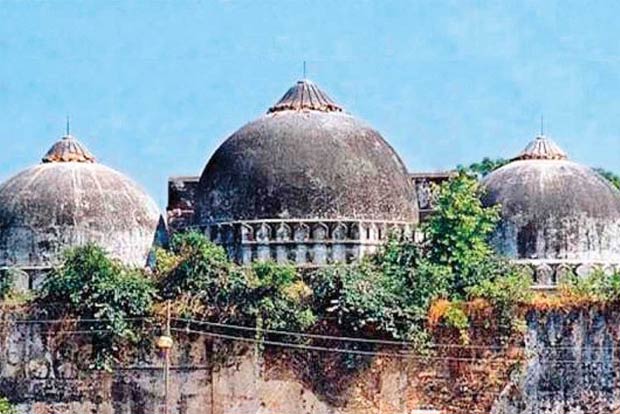Begin typing your search...
Babri Masjid demolition: Special court records statement of third accused
As many as 29 out of 32 accused including BJP and Sangh Parivar leaders like L K Advani, Kalyan Singh, Murli Manohar Joshi, Uma Bharti, Vinay Katiyar, Sadhvi Rithambara and Ram Vilas Vedanti are yet to depose under the provision. Earlier, the court had recorded the statements of accused Vijai Bahadur Singh and Gandhi Yadav.

Lucknow
A special CBI court trying the 1992 Babri masjid demolition case on Saturday recorded the statement of the third accused.
The accused, Prakash Sharma, appeared before Special Judge S K Yadav for the recording of his statement under section 313 of CrPC, which gives an opportunity to the accused to explain the allegations against them.
As many as 29 out of 32 accused including BJP and Sangh Parivar leaders like L K Advani, Kalyan Singh, Murli Manohar Joshi, Uma Bharti, Vinay Katiyar, Sadhvi Rithambara and Ram Vilas Vedanti are yet to depose under the provision. Earlier, the court had recorded the statements of accused Vijai Bahadur Singh and Gandhi Yadav.
The court will continue to record the statements of other accused on June 8. The Supreme Court has asked the judge to deliver the verdict in the case by August 31.
Only Prakash Sharma appeared on Saturday while the court exempted 28 other accused for a day through their counsel. Advani, Joshi and Uma Bharti have already been exempted from personal appearance till further orders. The court has framed around 1,000 questions which are to be asked from each of the accused. The special judge asked Sharma to furnish in writing the defence evidence, if any, after the recording of statement was completed.
The Babri Masjid was demolished in December 1992 by 'karsevaks' who claimed that the mosque in Ayodhya was built on the site of an ancient Ram temple. The prosecution had wrapped up the examination of its witnesses by March 6 and the court asked some of the accused to appear before it on March 24 for recording their statements under Section 313 of the CrPC. But the proceedings did not take place as the court in Lucknow closed due to the coronavirus lockdown. When the proceedings resumed on May 18, the defence counsel moved an application to summon three prosecution witnesses in order to cross examine them. This was allowed.
On April 19, 2017, the Supreme Court had ordered the special judge to conduct a day-to-day trial, concluding it in two years. Calling the demolition of the disputed structure a crime which shook the "secular fabric of the Constitution", it had allowed the CBI plea on restoration of criminal conspiracy charge against the VIP accused.
The court had termed the Allahabad High Court's February 12, 2001 verdict dropping the conspiracy charge against Advani and others as "erroneous". On May 8 this year, the top court set a new deadline for the special judge, asking him to deliver the verdict by August 31.
Before the 2017 verdict of the apex court, there were two sets of cases relating to the demolition, going on in Lucknow and Raebareli. The first case involving unnamed "karsevaks" proceeded in a Lucknow court and the second set of cases relating to eight VIPs was being heard in a Raebareli.
The cases were then clubbed. Last year, another bench of the Supreme settled the land dispute over the site where the mosque stood. The SC allowed the construction of a Ram temple at the site and ordered the allocation of a separate plot in Ayodhya for building a mosque.
Visit news.dtnext.in to explore our interactive epaper!
Download the DT Next app for more exciting features!
Click here for iOS
Click here for Android
Next Story



